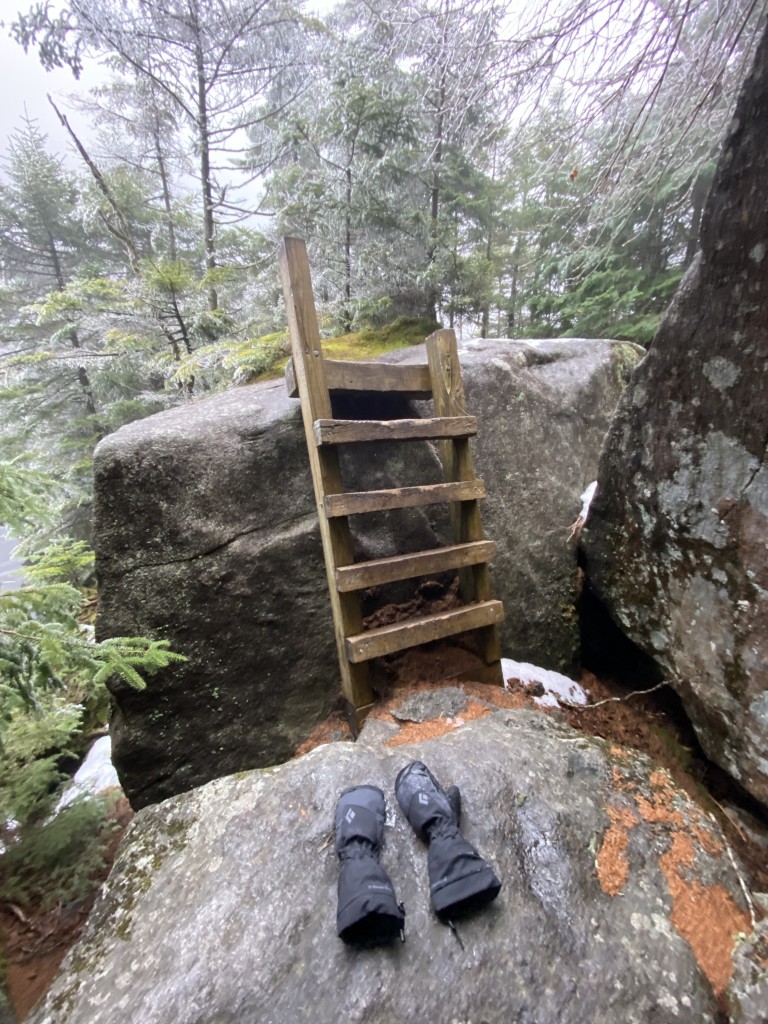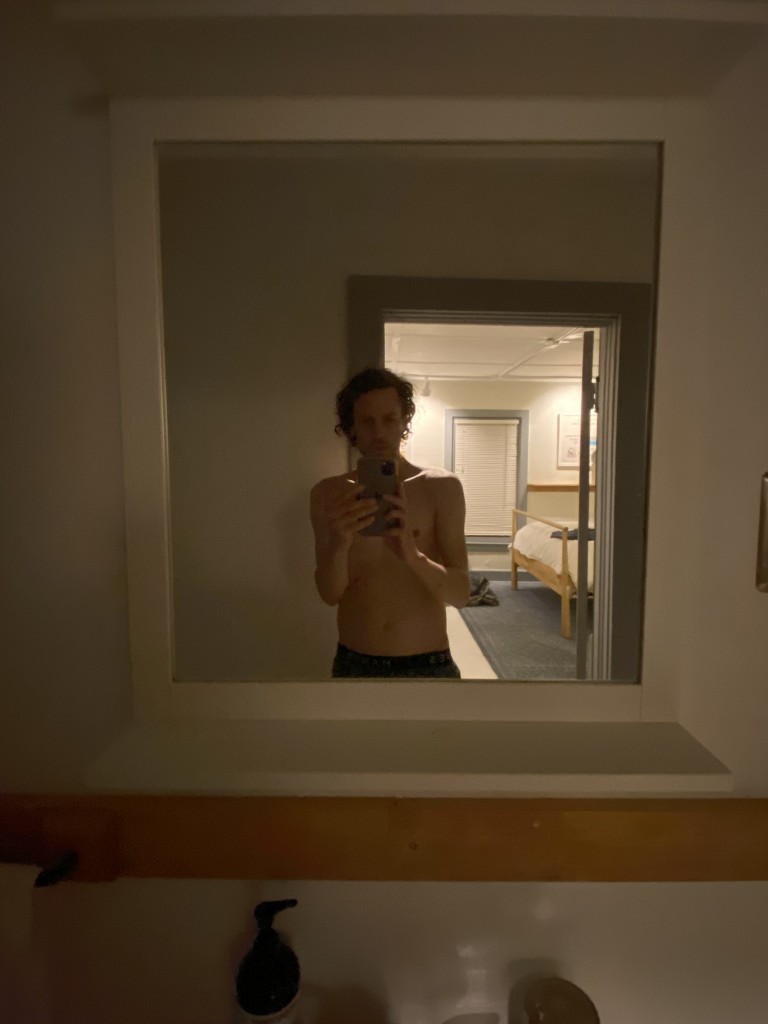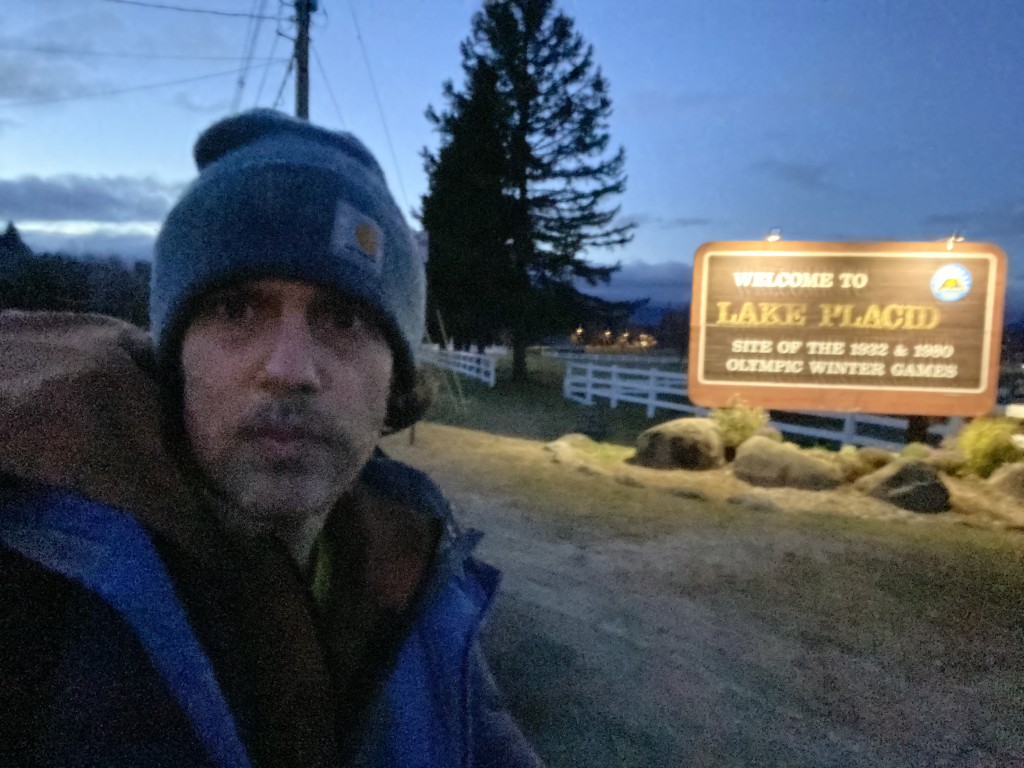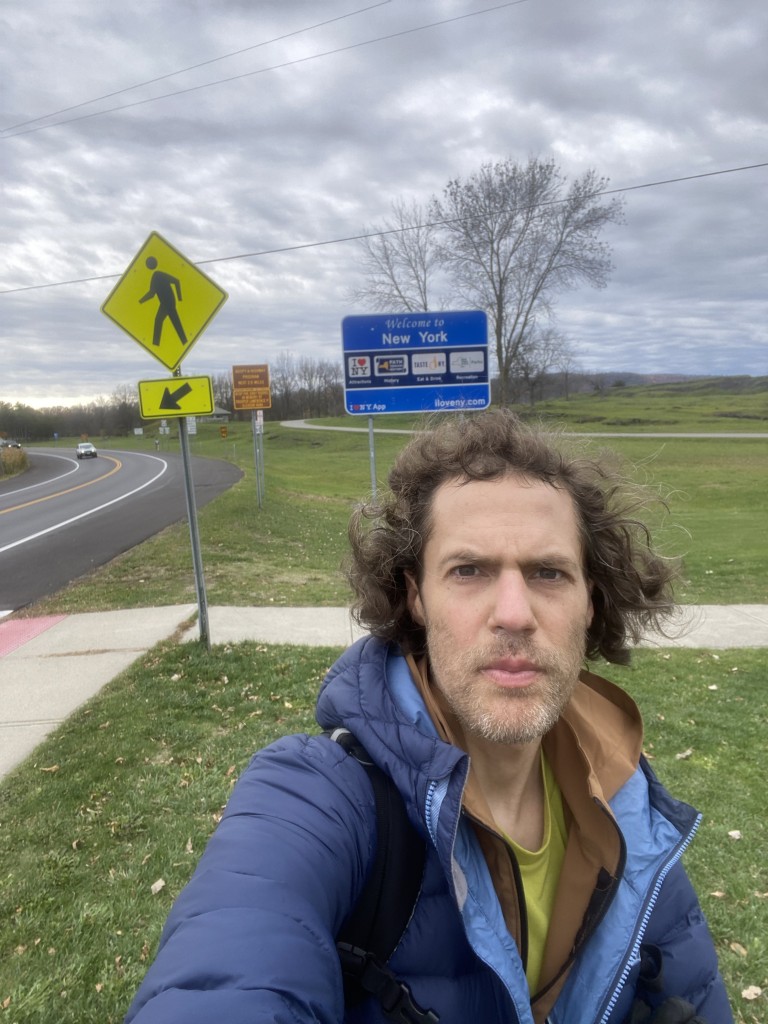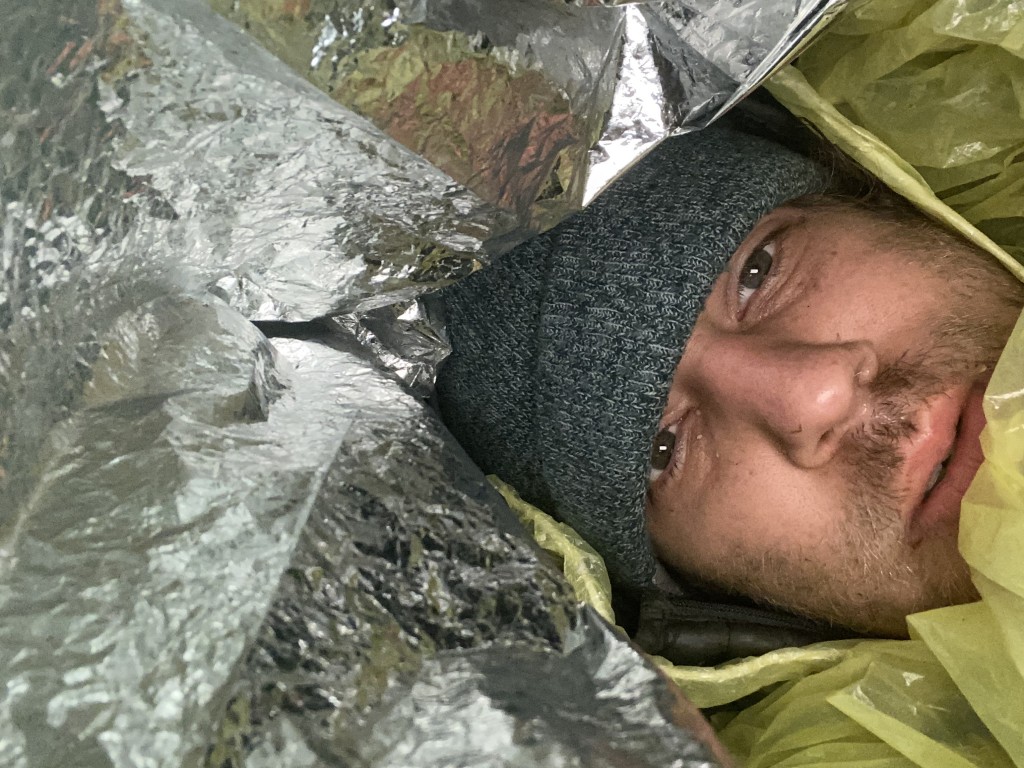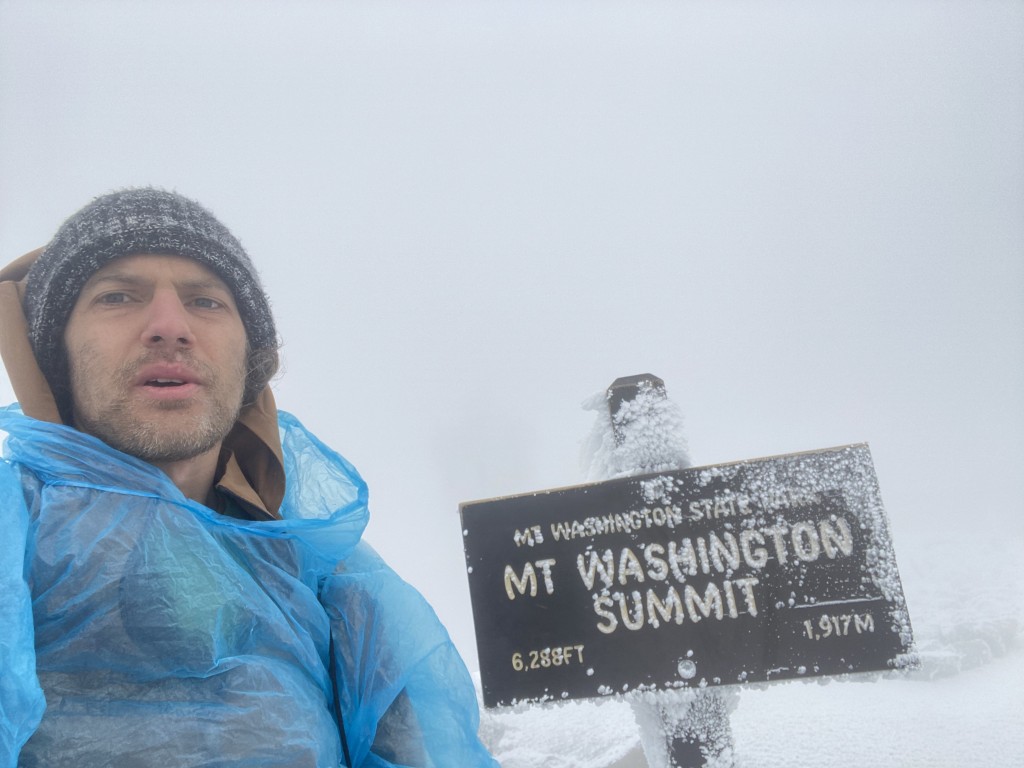New gear must arrive before the next major trip happens. I was itching to leave, but yes, as the title says, it’s all for love, falling in love with two different people and forced to war it out, make the best of it. I don’t know whom I love more, in fact it wavers constantly. But the world ought know, this is why these epic trips must happen, why I’m engaging in all these impressive feats. Again though I’m delayed and so cannot leave just yet, and must speak, and this is how I do, how I must.
Category Archives: Uncategorized
Return, Rest, Retool, Retune
Wickedly tough at times, the getting home, temps hovering around and below freezing, relentless rain and snow. An eager prognosis of two days’ biking, in two eight-hour shifts from Burlington to Manchester, proved fraudulent and unrealistic, and it all takes three weeks instead of two, several motel stays required to recover from that cold and weather hammering throughout. Came to a point where 40 degrees and sunny was being positively spoiled, as a chance to both rewarm and dry my gear, although recognizing I’d better get this thing done before conditions intensify even more.
I eventually did get it done, though without actually summiting the intended mountain, and now weigh the next one, the philosophy being, if something looks enjoyable, go and make every effort, do it now. I’ll be better prepared, cleats for the ice climbing plus a rudimentary rope for the steepest sections. It’s fun but of course the suffering must be managed, via adequate gear and so on, and high pain tolerance is a plus, as is levelheadedness as cars whiz by your roadside ramshackle encampment in full view. When it’s really cold and wet, you prioritize more the raw survival.
The next major trek will be preceded by a short trip to the nearby mountains to test out new gear against the inevitable ice and snow. And the eventual goal will be a steep route up Franconia notch climbed solo and with a single 16-foot rope for emergencies. Seems like it should be documented, this brand of mountaineering which rarely fails to excite nor test one’s truest capabilities. To commit is to follow through, long battle ahead which somehow someway strangely ends up being worth it.
As you’ll see, a submerged boardwalk laden with a thin veneer of invisible ice was what ultimately stopped me in the Adirondacks, before the blizzard rendered it all impassable, but I was ‘rewarded’ with a pair of mitts which proved indispensable on the return. This is dangerous business, but I’m no slouch mountaineer adventurer and once you get a taste, you kinda need to see it all the way through. Ample preparations and precautions so that it’s not idiotic absurdity, and then bam, go for it.
Oh, and it only just occurs to me to mention this, but I found about $200 worth of heroin on the last trip into the mountains, all of which (in contrast to instances past) was passed up because it detracts from the adventuring. Oh it’ll be pleasant at first, then it hits you, I’ve got some explaining to do, explaining I’d rather not expend slimy circuitous energy upon, rather just wait until better gifts arise, for instance those gloves, or the food someone thankfully gifted me, or (perhaps most impressive of all) the propane-fueled space heater I was lent while suffering profoundly from hypothermia, and at the very moment before calling 911. True, this was before coming across the heroin, but it’s still far more appreciated overall since, again, it bolsters the adventure rather than detracts from it. I’ve got my own drugs of choice, but facing genuine threats to life, that’s also got its own unique insuppressible thrill to it. I gave my wallet’s monetary contents to those passersby rock climbers in exchange for the propane fuel, but really it’s that perfectly-timed god-gifted thing that is most appealing. And the day that heroin becomes useful and worthwhile again, well, maybe I’ll snatch it up, but for now I’ll focus on the trip ahead, rest and prep, prep and go, and don’t come home until there are some crazy good stories to tell, that is for damn well sure.
A Single Day is Instant Memory
You see here some of the benefits of hardcore exertion, but recognize also the difficulty, traveling through the mountains for four hours during a snowstorm, yearning for a respite, maybe just up over the next hill? Wait where were those easy-coast downhills I was expecting? A snowflake to the eye at full speed can not only be extremely painful but debilitating, so it becomes an art of squinting, keeping one eye open, tilting them down, covering them with the hat, the hood, all the while fighting an incredible battle against hypothermia and wet gear which cannot be dried in the outdoors, so periodic motel stays become essential. I’m here now, I’m safe, it’s plain miracle that I made it here from the Adirondacks high peaks in one day, but like I said, I crave the return to Manchester, what will that be like, will I be enriched by all this crazy and strenuous and pain-tolerance-expanding endeavor? We shall see, but yes even a single day becomes an instant memory when so fucking much is crammed in, great tests faced and passed, bookended by genuine enjoyment and satisfaction, the piece of cake as reward for the struggle. But I say it again, it’s been an incredible journey, well worth a few blog posts, in fact I’m compelled to, and maybe people are even reading it. Well if so, you’re making this freak outsider poet smile, and these may even become a regular thing, if life continues on like this, herculean adventures that, for the good of all, must be documented, put into writing. But, as I said a short while back, it’s basically for the one or two people I like the most, for whom promises are made and usually kept, and here’s one right here. I expected the trip to take two weeks, but it’s stretching to three, I hope you understand, I’ll be back home soon. And for everyone else, thanks for reading, help a writer start to really make a living doing what they love. Now, once more, I rest and recover while my gear dries, in time for another sustained push tomorrow, and probably another tentless camping night before reaching the next viable pitstop house in VT. It’s crazy, it’s wild, but it’s fun.
The Plateau, then the Release
My massive Adirondack trek is ready to return home. I gave it absolutely all I had, but unforgivable perils, dangers far beyond hypothermia, ultimately turned me back. I realized, after two separate days’ hikes in snowy weather conditions, that I’d gotten enough, incredible efforts in exchange for the release, the mountain sure isn’t worth dying for. And so, yes, I return home, stopping at my brother’s residence in Vermont on the way, and after an unforgettable stay at a ‘Loj’ amidst the high peaks all around, the most startlingly spare accommodations and for less than $100 a night. It’s a remarkable experience which will mold me, stick with me, and I look forward to my return to my hometown of Manchester. It may take four days to get back, or it may take a week, regardless nothing can dim this epic adventure, and I crave more, whether sprawling or stationary, after the needed break, rest, recover, return.
I promised I would
Regardless the zilch readership or viewership nor promotion of any kind, I delivered a poem to the inner city before leaving on this latest epic adventure, that included a promise I’d blog-post midway, reassurance I’m still alive and kicking to the handful of people that really truly care and whom I too care about, one or two in particular. Hypothermia nearly killed me but I survived and am positioned for an assault on the very trail I came all the way to far-upstate New York for, a great test of ability and devotion, next step up from the preceding trek up the hardest route on Mt. Washington. I’ll post a summit pic of that one, plus a few shots of this sprawling and staggering trip. I know it earns no money, but something somehow somewhere compels and impels and assures me that it will be absolutely and indelibly worthwhile. The weather has been an extreme obstacle thus far but again, I’m within striking distance and brimming with anticipation, and wish those one or two people were here with me. Solo though it seems it must be, but I hope I can draw you in, make you wanna do this sorta thing too, as it’s always gonna be more fun with two or more. Alas, here it is. And pardon the grave expression, cold and rain take their toll, plus these shots weren’t of the really fun stuff, just to document the journey for posterity.
ProximA password
my favorite SNL character, all lowercase no spaces. Only a handful of people ought know, but their reactions determine whether I share it further


